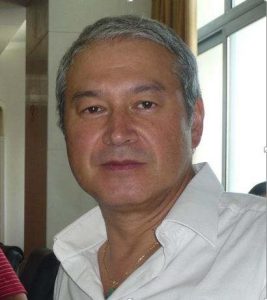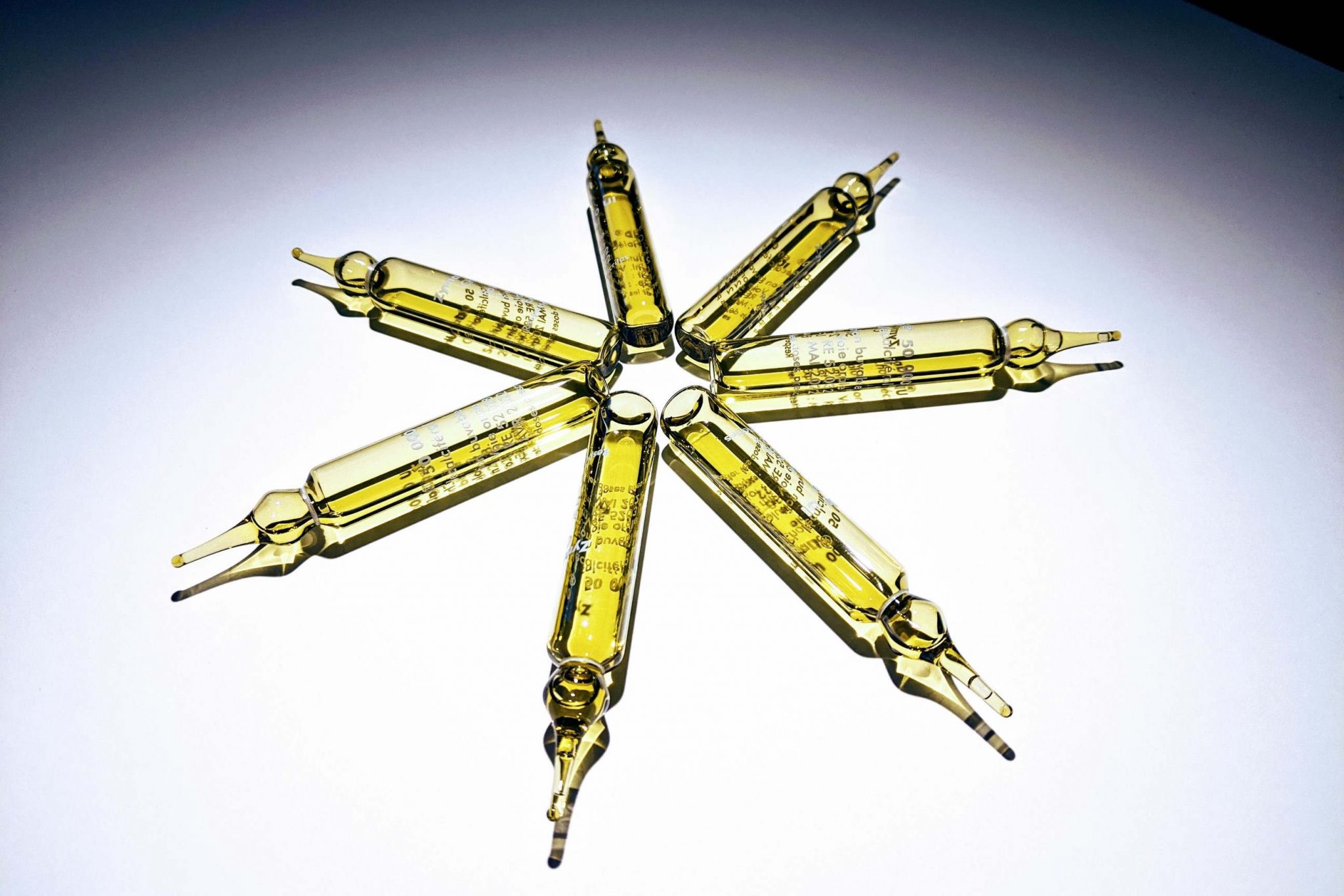Vitamin D slows down a “key” physiological system that has become deleterious because it is overactivated by the SARS-CoV-2 coronavirus,” emphasizes Jean-Marc Sabatier. Vitamin D also allows the immune system to function optimally and induces the production of antiviral molecules in the host in order to fight the virus more effectively”. Explanations.

Jean-Marc Sabatier, Research Director at the CNRS and Doctor in Cell Biology and Microbiology, affiliated to the Institute of NeuroPhysiopathology (INP) of Marseille. Editor-in-chief of international scientific journals: “Coronaviruses” & “Infectious Disorders – Drug Targets”.
Jean-Marc Wendling – Yesterday, Pr Jacques COHEN warned us about the Covid vaccine. What do you think of the vaccination policy in France and the potential associated risks?
JMS – The upcoming availability of several vaccines against SARS-CoV-2 is very important in trying to solve the global health problem posed by this virus. The candidate vaccines are based either on messenger RNA, or on an attenuated virus (adenovirus or modified measles virus), or on the inactivated virus, or on a recombinant protein (S protein). The messenger RNA vaccines (a new technology), which seem to be the most advanced, are those of Pfizer & BioNtech and Moderna, which announce a very high level of protection, of the order of 95%. The three-phase progressive vaccination strategy presented by the French government seems appropriate to me, with priority given to the vaccination of the elderly in EHPAD and the at-risk personnel of these establishments (as of January 2021).
The risks related to vaccination are in my opinion very low but nevertheless present:
– a possible triggering of “deleterious” physiological response(s) following an interaction of the vaccine protein produced with one or more “receptor sites”;
– or the induction of an inadequate immune response against the vaccinated (self-protein(s)) leading to the triggering of possible autoimmune diseases.
These risks are difficult to estimate in terms of frequency and in my opinion, the benefit/risk ratio of a vaccination against SARS-CoV-2 remains very favorable, especially in the most vulnerable.
JMW – Your expertise is in the study of the effects of vitamin D: how long have you been doing research on vitamin D and what did you identify at the beginning of the pandemic?
JMS – I became particularly interested in the study of vitamin D as early as March 2020 after a discussion with Dr. Emmanuelle Faucon who had raised the interest of this molecule for Covid-19.
At that time, I had just identified the “key” role of a complex physiological system acting everywhere in the body and on many organs: the renin-angiotensin system (RAS). I found remarkable analogies between the SARS-CoV-2 coronavirus infection and the consequences of the dysfunction of this system on the human body. This study revealed that RAS and vitamin D are closely related. This system becomes overwhelmed in the presence of the virus and leads to the known deleterious effects. Vitamin D seems to act as a “brake” on the SRA, like braking a car that runs away and drives straight into a wall! We have continued these studies with our collaborators who are the directors of the Virology Laboratory of Wuhan (China), Prof. Zhijian Cao and Yingliang Wu (1), as well as Dr. Cédric Annweiler (geriatrician at the CHU of Angers) and Prof. Hervé Kovacic.
JMW- If this “brake” is lifted, would vitamin D deficiency then give health manifestations close to Covid-19 disease?
JMS: I would answer in the affirmative. The mechanism is a bit complex but in case of vitamin D deficiency (plasma Calcidiol level less than 10-20 ng/ml), an acceleration of RAS would lead to pathologies induced by the activation of the AT1R receptor (via angiotensin 2). In particular, this activated receptor causes vasoconstriction (hypertension), inflammation (vascular system, etc.), tissue fibrosis (lungs, heart, etc.), oxidative stress, cardiac hypertrophy, as well as a decrease in the concentration of nitric oxide (NO), which is involved in many physiological processes, including immunity and memory (memory) (3). This deleterious effect of AT1R on the human body results in the appearance of multiple and varied pathologies, similar to those described for an SARS-CoV-2 infection (1,2).
JMW – Does complementation then reduce the risk of Covid-19?
JMS: Vitamin D supplementation (cholecalciferol or vitamin D3) is essential: it should make it possible to reach an expected blood level of vitamin D (Calcidiol between 30 and 60 ng/ml, or even 80 ng/ml). Vitamin D thus counters the deleterious effect of an overactivated RAS and will thus prevent the evolution towards serious, even fatal, forms of Covid-19 in the event of an SARS-CoV-2 infection (4,5).
Our work with my colleague from the CHU d’Angers, Dr Cedric Annweiler, already mentioned in a news article, has shown that 82.5% of participants in a treated group survived Covid-19, compared to only 44.4% in the untreated group. The risk of mortality was thus reduced by 89% in the group treated with vitamin D3 supplementation. This study was complemented by monitoring the effect of treatment in geriatric wards on 3 groups. In the group regularly supplemented with vitamin D, 93.1% of patients with Covid-19 survived to day 14 and 81.2% in the group recharged at diagnosis. The untreated group had a survival rate of only 68.7%.
In Spain, in a study conducted on 76 patients in a controlled trial by the Respirology Department of the Reina Sofía University Hospital of Córdoba, after drawing of patients on the day of admission, the risk was reduced by 97% according to the authors. None of the patients treated with calcifediol died and all left without complications .
Finally, Radujkovic estimates that in the population “the proportion of attributable risk is 87% of Covid-19 deaths, deaths that could be prevented in this way”.
JMW – What are the mechanisms and how can it be explained?
JMS – The mechanisms of action of vitamin D are multiple and particularly complex (6). Indeed, vitamin D is a seco-steroid pro-hormone that acts on at least 200 genes, hence its involvement in many physiological processes: bone mineralization and calcification, innate immunity (circulating monocytes, macrophages, dendritic cells/antigen presenting cells, Natural Killer (NK) cells, etc.), and the development of new immune systems. ) and adaptive/acquired immunity (B and T lymphocytes), the proliferation and differentiation of certain cell types (including immune system cells), the maintenance of physical barriers (effect on inter-cellular junctions), as well as the regulation of RAS.
In particular, vitamin D helps to avoid/mitigate the cytokine storm that is highly deleterious for the human body (excessive release of pro-inflammatory cytokines TNF-alpha, interleukin-6, interleukin-1-beta, interferon-gamma, etc.), which is at the origin of the evolution towards severe forms of Covid-19. In parallel, vitamin D enhances the production of anti-inflammatory cytokines via adaptive/acquired immunity, in order to inhibit acute systemic hyper-inflammation.
Another action of vitamin D on innate immunity is to directly induce the production of anti-microbial molecules active on viruses. Recent work has shown that cathelicidin LL-37 inhibits the binding of the SARS-CoV-2 S protein to its ACE2 receptor in vitro.
Thus, vitamin D allows the immune system to function optimally and induces the production of antiviral molecules enabling the host to fight more effectively against CoV-2-SARSS.
JMW- Could other molecules potentiate the effect of vitamin D?
JMS- Yes, other molecules should make it possible to potentiate the effect of vitamin D. Among these molecules, dexamethasone would act as a “brake” on RAS, like vitamin D. Experimentally, dexamethasone appears to increase the transcription of the vitamin D receptor and potentiate the effect of Calcitriol (1,25-dihydroxy-vitamin D3) which is the bioactive form of vitamin D.
Zinc (Zn2+) seems to be of interest in the context of an optimal effect of vitamin D, as it is a cofactor of numerous enzymes (zinc metallo-proteases) involved in various physiological processes, and is found in specific transcription factors controlling gene expression.
Finally, angiotensin metabolites are candidate molecules for future Covid-19 therapeutic trials such as angiotensin 1-7, angiotensin 1-9, alamandin, angiotensin A and angiotensin IV, all of which act as “brakes” on RAS by their respective actions on the cellular MasR, AT2R, MRGD, ACE2, and AT4R receptors; they should also potentiate the effect of vitamin D (7).
JMW – Why are there no recommendations for supplementation for those who need it most as in the UK?
JMS- In fact, there are recommendations for vitamin D supplementation issued by the National Academy of Medicine (in 2012, and May 22, 2020). Nevertheless, the recommended supplementation appears too low to benefit from all the potential beneficial effects of vitamin D. Optimal and non-toxic vitamin D supplementation appears indispensable (4000 IU per day), especially for people at risk (elderly, diabetics, obese, hypertensive, people with dark or matt skin producing less vitamin D because of melanin, etc.). England and Norway are starting vitamin D supplementation for these at-risk people.
A strong operation of immediate information-awareness raising for city doctors and EHPAD would be timely while waiting for the safe and effective vaccine.
Interview by Dr. Jean-Michel Wendling, scientific consultant for infodujour.fr
Références
SARS-CoV-2 & Covid-19 : Les rôles clés du système rénine-angiotensine / Vitamine D ayant un impact sur le développement des médicaments et des vaccins. Cao, Z., Wu, Y., Faucon, E., Sabatier, J.M., Infectious Disorders – Drug Targets, 20, 348-349 (2020). Doi: 10.2174/1871526520999200505174704
ACE2 – Du système rénine-angiotensine au microbiote intestinal et à la malnutrition. Perlot, T., Penninger, J.M., Microbes and Infection, 15, 866-873 (2013).
Troubles neurologiques, cognitifs et comportementaux pendant le Covid-19 : la voie de l’oxyde nitrique. Annweiler, C., Bourgeais, A., Faucon, E., Cao, Z., Wu, Y., Sabatier, J.M., Journal of American Geriatrics Society, 10.1111/jgs.166671 (2020). Doi : 10.1111/jgs.166671
Point de vue : Les patients atteints de Covid-19 devraient-ils recevoir une supplémentation en vitamine D ? Annweiler, C., Cao, Z., Sabatier, J.M., Maturitas, 140, 24-26 (2020). Doi: https://doi.org/10.1016/j.maturitas.2020.06.003
Vitamine D et survie chez les patients atteints de Covid-19. Une étude quasi-expérimentale. Annweiler, C., Hanotte, B., de l’Eprevier, C.G., Sabatier, J.M., Lafaie, L., Célarier, T.J. Steroid Biochem. Mol. Biol. 204, 105771 (2020). Doi: 10.1016/j.jsbmb.2020.105771.
Vitamine D. Dusso, A.S., Brown, A.J., Slatopolsky, E., Am. J. Physiol. Physiol rénal. 289(1):F8-28 (2005). Doi: 10.1152/ajprenal.00336.2004.
Médicaments candidats contre-réglementaires basés sur le système “rénine-angiotensine” pour traiter les maladies à Covid-19 chez les patients infectés par le CoV-2 du SRAS. Annweiler, C., Cao, Z., Wu, Y., Faucon, E., Mouhat, S., Kovacic, H., Sabatier, J.M., Infectious Disorders – Drug Targets, 20, 407-408 (2020). Doi: 10.2174/1871526520666200518073329

